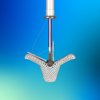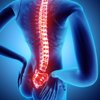Fritextsökning
Artiklar per år
Innehållstyper
-

Astra Zeneca satsar stort inom fetma
Nya potentiella behandlingar inom obesitas, njursjukdomar och leversjukdomar är några exempel på projekt som gör svensk-brittiska Astra Zenecas pipeline till en av världens största och bredaste.
-

Innovative start-up helps doctors, scientists and industry balance coagulation risks
For many doctors caring for seriously ill patients, for example, in stroke units and cancer wards, maintaining the life-saving balance between bleeding and thrombosis is an ongoing challenge. In the late 1980s, scientists at Maastricht University in the Netherlands developed an innovative method, the thrombin generation assay (TGA), which provides a complete overview of a physiological process crucial for maintaining normal haemostasis.
-

“Conducting research at universities is becoming more and more like working at a research hotel”
The government wants Swedish research to focus on excellence and innovation, but can the two be combined? Life Science Sweden talks to Anna Falk, a professor at Lund University, about research policy, the constant hunt for funding in academia and what constitutes ‘fine research’.
-

Bayer has cut 1,500 roles – so far
German chemical and pharmaceutical group Bayer cut more than 1,500 roles in the first quarter alone– and most of them were management positions.
-

Total pipeline of pharmaceutical companies reaches a record high – 22,921 medicines are currently being developed
Despite the difficult economic times, pharmaceutical companies have never developed as many new drugs as now.
-

Carl Borrebaeck – professor and serial entrepreneur with a taste for speed
Award-winning cancer researcher, the founder of many listed companies, and constantly in the academic and commercial spotlight for decades. However, Carl Borrebaeck, Professor of Immunotechnology at Lund, is not yet satisfied. “We have a new, potentially super exciting project in the pipeline,” he says.
-

”Att forska vid universitet blir alltmer som att verka vid ett forskarhotell”
Regeringen vill att svensk forskning ska fokusera på excellens och innovation. Men går det att kombinera de två? Life Science Sweden samtalar med Anna Falk, professor i Lund, om forskningspolitik, om den ständiga jakten på anslag inom akademin och om vad som egentligen är ”finforskning”.
-

Astra Zenecas nya läkemedel för bröstcancer rekommenderas för godkännande i EU
Astra Zenecas läkemedel Truqap i kombination med Faslodex har rekommenderats för godkännande i EU som behandling av vuxna patienter med framskriden bröstcancer med vissa genetiska mutationer.
-

Nocebo – the evil twin that makes you feel worse
The placebo effect is well known in healthcare, but not so its opposite: nocebo. “The effect is small, but it can have major repercussions,” says Uppsala researcher Charlotte Blease, co-author of a book on the phenomenon.
-

Study: Popular diabetes treatment is not associated with thyroid cancer
Concerns raised about an association between GLP-1 analogues, used to treat diabetes and obesity, and an increased risk of thyroid cancer are not supported by an extensive Scandinavian study.
-

Tungt namn till Alzecure: ”Fantastiskt spännande"
Han har varit global forskningschef för jättebolagen Astra Zeneca och Eli Lilly – nu kliver profilen Jan Lundberg in i Alzecure Pharma.
-

Beta-blockers are often given unnecessarily, a study finds – “This will affect future practice”
Patients who have suffered a minor heart attack do not benefit from beta-blockers, according to a major new study that may change guidelines for cardiac care.
-

Betablockerare ges ofta i onödan enligt stor studie – ”Kommer påverka framtida praxis”
Patienter som drabbats av en mindre hjärtinfarkt har ingen nytta av betablockerare, enligt en ny stor studie som kan komma att ändra riktlinjer för hjärtsjukvård.
-

Verktyg för hjärtklaffsreparation får godkännande av FDA
Hjärtklaffsverktyget Triclip från Abbott har fått godkänt av amerikanska läkemedelsmyndigheten FDA. Tekniken är speciellt designad för behandling läckage i trikuspidalklaffen.
-

Nya råd om ryggmärgsstimulering: Använd bara när annat inte hjälper
Elektrisk stimulering av ryggmärgen kan användas mot långvarig smärta – men enbart i de fall konventionell smärtbehandling inte hjälper. Så lyder en ny rekommendation från MTP-rådet.
-

Anna Törner: ”Orphan Designation – the "petite robe noire" of drug development”
It is easy to cling to various regulatory incentives, like orphan designation, and other expedited pathways, without understanding what they truly mean or whether they are indeed right (or wrong) for the current project, Anna Törner writes in a column.
-

Specific proposals and targets top the universities’ desired priorities
What are the universities’ expectations for the update of the national life science strategy? Life Science Sweden posed the question to representatives from Karolinska Institutet and Sahlgrenska Academy.
-

Nytt miljardförvärv stärker Astra Zeneca inom radiofarmaka
Astra Zeneca satsar inom radioaktiva läkemedel genom att köpa Fusion Pharmaceuticals för upp till 2,4 miljarder dollar, motsvarande drygt 25 miljarder kronor.
-

Anna Törner: ”Orphan designation läkemedelsutvecklingens ’petite robe noire’”
Det är så lätt att klamra sig fast vid olika regulatoriska incitament, som orphan designation, utan att egentligen veta vad de innebär och på vilket sätt de kan vara rätt (eller fel), skriver Anna Törner i en krönika.
-

Forskare närmare att skapa konstgjorda äggceller – ”Väldigt stora risker”
Kan en hudcell förvandlas till ett ägg som kan producera livskraftiga embryon? Nya forskningsframsteg kopplade till tekniken som användes för fåret Dolly kan innebära en revolution inom reproduktionsmedicin, enligt ny studie. Men Niklas Juth, professor i medicinsk etik, är skeptisk.
-

Prismiljoner till forskning om TBE och bakterieätande virus
TBE-virusets väg till hjärnan och bakteriofager som alternativ till antibiotika hör till de forskningsfält som premieras när sammanlagt 33 miljoner kronor tilldelas fem yngre forskare i Sverige.
-

“What is important is to create an overview and understanding from different perspectives”
Scientist Jochen Schwenk analyses blood proteins using proteomics to improve our understanding of disease and health. This year, he is moderating the Lab & Diagnostics of the Future event.
-

From Valneva to the CEO position at NorthX – “I saw it as a great opportunity”
A new cell therapy for leukaemia, a vaccine in tablet form against cholera, and a proprietary mRNA line with the potential capacity to supply the entire Nordic region with vaccines during a future pandemic. These are some of the projects underway at NorthX Biologics – under the direction of new CEO Janet Hoogstraate.
-

To build trust, one must be able to say “I don’t know” – whether human or AI
Will AI strengthen or break down trust? It depends on whether we can understand and accept its limitations, and our own, writes Sarah Lidé in a column.